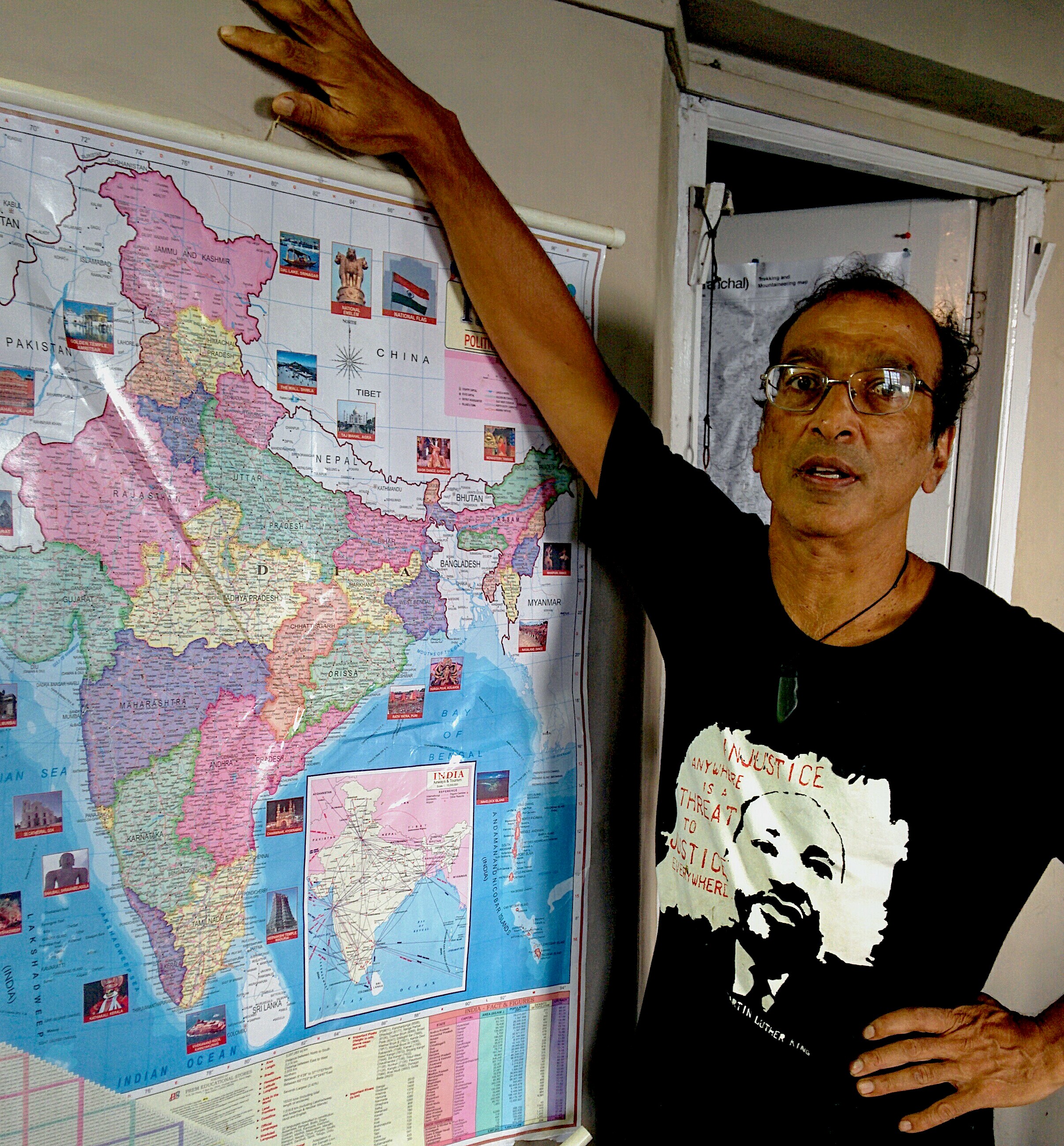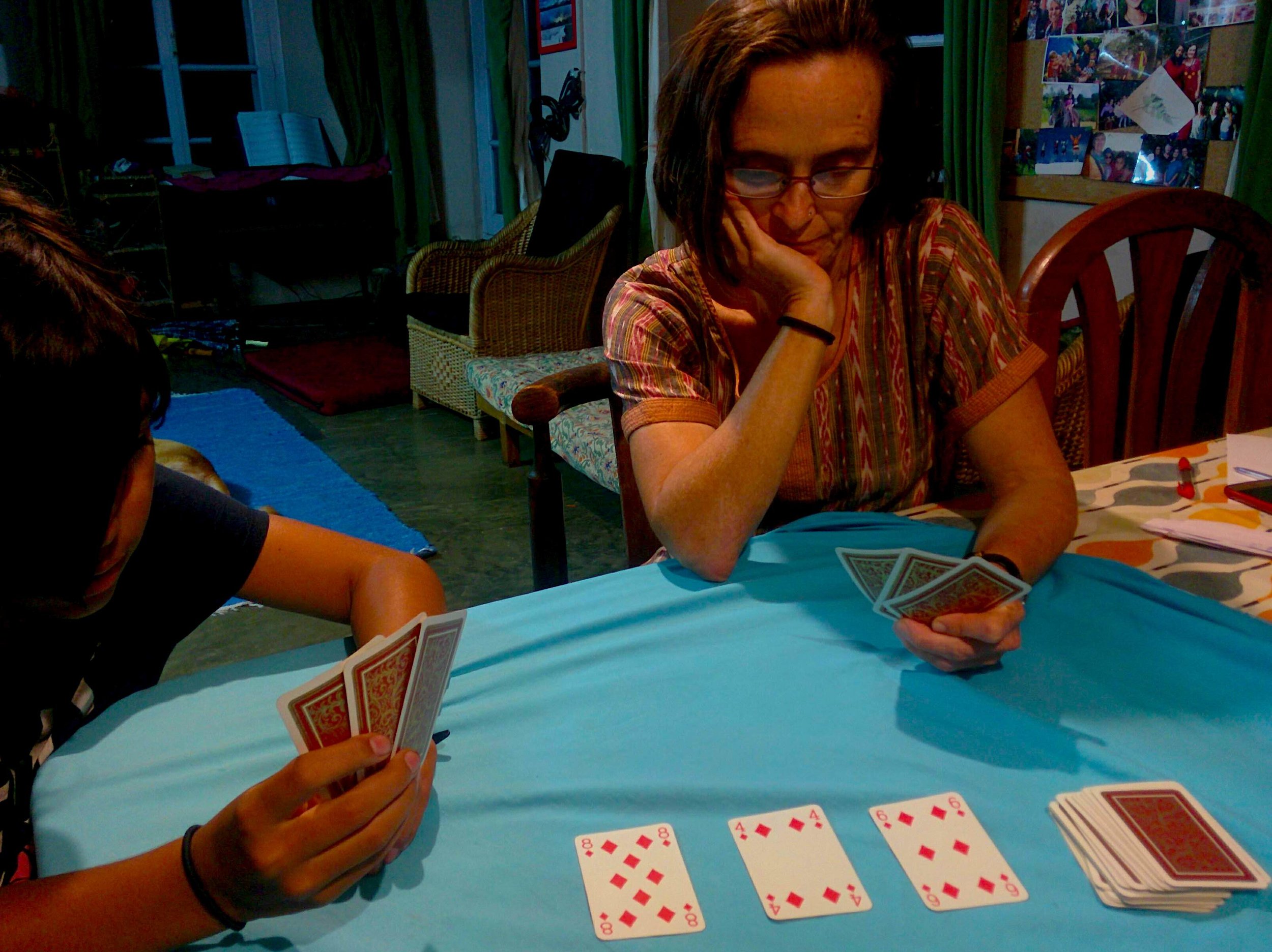In a blog a while back I likened Outcome Harvesting to massage- a metaphor to elicit a feeling for what OH is like- deep, slow and sensitive. Yesterday I returned from an Outcome Harvest* with a small NGO in Indonesia commissioned by the International HIV/AIDS Alliance. I brought back with me a new understanding not of what OH is like but what it is. Its a way to listen to a system.
Having fun at our interviewing skills workshop last week.
Keen to be participatory and involve members of Rumah Cemarah (the NGO) as interviewers I ran a training to explain what OH is and work on interview skills. One of the Rumah Cemara team acknowledged that an outside evaluator like me could be objective but suggested he could not objectively evaluate his own NGO’s work.
I replied “Neither you, I nor any other human being is ever objective” then added “Luckily, actually neither you nor I are evaluating. Indonesia’s social system in which Rumah Cemarah is nested is continuously evaluating your edgy approach to drug and HIV, stigma, inclusion and policy- our job is only to understand that system evaluation.”
I surprised myself with this explanation, but it sits well with me. For this OH we listened to people who use IV drugs, HIV+ people, government ministries, the director of UNAIDS, shopkeepers behind their counters, university students, other NGOs, players on a futsal pitch under a motorway bridge, kids in the street, muslim women who’ve taken up boxing and many more. Listening, Listening, Listening. Picking up shards of change from all over the system and piecing them together into a mosaic of Indonesia’s social system with respect to HIV and iv drugs. Asking why the picture is like this now, how it used to be and what Rumah Cemarah has added to the shape of each piece and the configuration of all the pieces together (i.e. the ‘system’). Outcome Harvesting? Making mosaics out of myriad story shards.
Yes! A relevant project changes the system which enfolds it. OH looks for that change, tries to delineate the system’s new shape, what it evolved from, why and how the project contributed. Or, if you like, OH asks the system for its latest project evaluation. Human systems are made out of individuals and institutions. Systems ‘speak’ via changes of behaviour attitude relationship or policy (outcomes) in those people or groups. Focused on outcomes OH listens deeply, in the very language that systems speak.
A conversation with a system? Works for me- what do you think?
*Rumah Cemarah and the International HIV/AIDS Alliance asked for this evaluation to understand better how change happens in complex contexts, particularly that most complex context of all- the human brain from whose murky depths discrimination and stigma might emerge.











